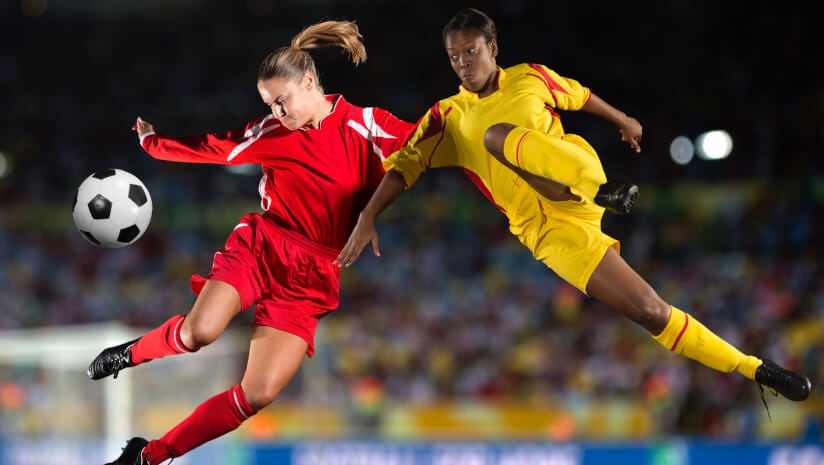Writing in the European Journal of Sport Science, a team of researchers from the UK and Spain evaluated the effects of four weeks of daily ashwagandha supplementation in players recruited from two professional soccer clubs in Barcelona.
“Ashwagandha is a supplement with the potential to improve exercise performance,” they wrote. “This study investigates the effects of ashwagandha on exercise recovery and muscle strength in professional female athletes, addressing a gap in understanding its role in this underrepresented population.”
The primary ingredient in the supplement was root extract KSM-66 ashwagandha (Ixoreal Biomed, Hyderabad, India) supplied by Zenement (Bitio Project SL, Barcelona, Spain), although the company had no further role in the study.
Ashwagandha and unique recovery challenges
Ashwagandha, an adaptogenic herb long used in the traditional Ayurvedic and Unani medicine systems to increase resilience to physical and psychological stressors, has been employed more recently as ergogenic aid to improve muscular strength, resistance to fatigue and recovery from exercise.
In female athletes, who the researchers noted face “unique recovery challenges due to physiological and hormonal factors that can exacerbate fatigue and impair recovery,” ashwagandha may serve as targeted support to ensure optimal muscle strength, which is crucial for not only performance but overall fitness and longevity in sport.
“Improved muscle strength is essential for female athletes, such as [soccer players] who require explosive power and endurance in gameplay,” they wrote. “Stronger muscles and adequate sleep enhance performance, lower the risk of injury and facilitate quicker recovery.”
The primary outcomes of the study included changes in subjective measures of perceived recovery such as recovery quality, perceived exertion, muscle soreness, stress levels and sleep quality that significantly influence an athlete’s ability to maintain consistent high performance. Secondary outcomes focused on muscle strength.
Regarding potential mechanisms of action, the researchers cited previous research linking ashwagandha supplementation to modulation of the GABAergic system to help inhibit neuronal activity, induce relaxation and improve sleep quality. For muscle strength, ashwagandha’s proposed mechanism is the modulation of cortisol, a hormone known to spike during intense competition and negatively impact muscle performance.
“Ashwagandha has demonstrated significant improvements in maximum oxygen uptake (VO2max) and strength and muscular power of the upper and lower limbs in studies conducted on males and females, which may be attributed to the reduction in cortisol,” the researchers wrote. “By reducing cortisol levels, ashwagandha may reduce the catabolic effects of stress on muscle tissue, potentially promoting strength gains.”
Study details
The randomized, double-blind, placebo-controlled study recruited 30 female soccer players between the ages of 18 and 36 and assigned them to consume either a 600 mg/day ashwagandha root extract (ASH) or a chickpea flour placebo (PLA) for 28 days.
Participants completed a series of strength, recovery, exertion, stress and sleep tests at baseline and on days 14 and 28 of the test period—in all cases evaluated the day after soccer matches.
“A 28-day supplementation with 600 mg of ashwagandha root extract significantly improved total quality recovery in professional female footballers compared to placebo,” the researchers reported. “Significant improvements in perceived sleep quality were observed in the ashwagandha group compared to the placebo group, with a marked difference detected at 14 days.”
No significant impacts on rate of perceived exertion, perception of fatigue, muscle soreness and stress were observed, which the study suggested might be due to the relatively short duration of the intervention and potential variations in individual responses. It also identified lower-than-expected carbohydrate intake among participants, which the researchers said could hinder strength gains and highlights the need to consider dietary habits when evaluating supplementation for performance enhancement.
While they described the findings of improved recovery markers as encouraging, they called for further studies across varying dosing regimens, extended or reduced supplementation periods, research in a wider range of athletes and use of a crossover design and clinical testing, including cortisol measurements and sleep actigraphy readings, to deepen the understanding of ashwagandha’s physiological effects.
Source: European Journal of Sport Science. doi: 10.1002/ejsc.12265. “Effects of Root Extract of Ashwagandha (Withania somnifera) on Perception of Recovery and Muscle Strength in Female Athletes”. Authors: Olivia Coope et al.




